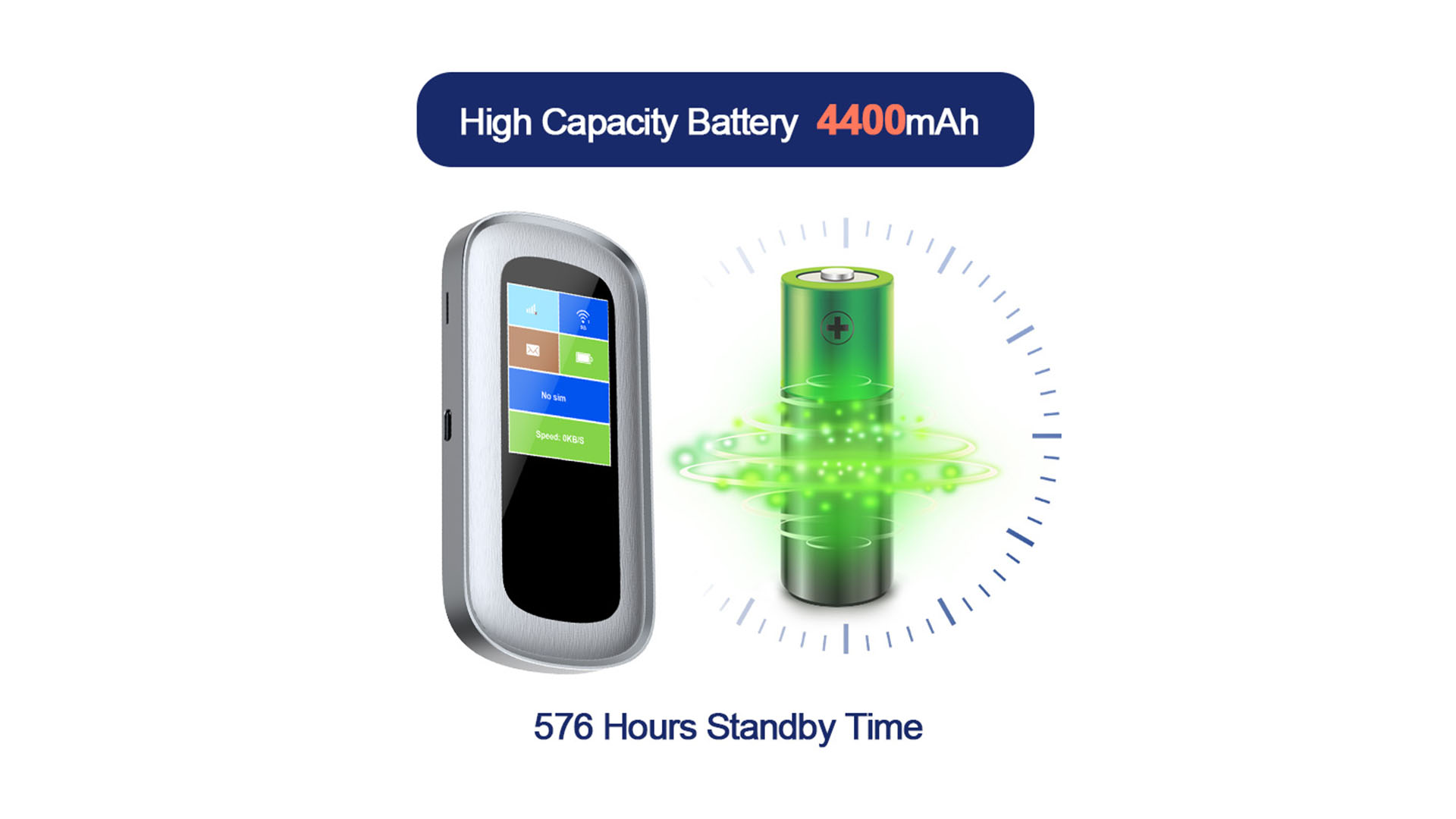Introduction
As 5G networks continue to roll out across the globe, MiFi devices have become increasingly popular as a way to connect to these networks on the go. A MiFi device is essentially a mobile hotspot that allows you to connect multiple devices to a cellular network, providing internet access wherever you go. With so many different manufacturers and models to choose from, it can be difficult to know which one to choose. In this blog post, we will discuss how to choose a 5G MiFi manufacturer.

Consider The Network Compatibility:
When it comes to network compatibility, it is important to do your research before making a purchase. To determine if your area has 5G coverage and to find compatible devices, consider checking with your carrier. They can provide information on their 5G services and compatible devices. Additionally, online forums and review sites can provide valuable insights from other users regarding device compatibility with various carriers.
Apart from compatibility, it is crucial to consider the types of 5G networks available. Two main types of 5G networks are sub-6GHz and mmWave. The sub-6GHz network operates on a lower frequency, providing a broader coverage area but with slower speeds. On the other hand, mmWave operates on higher frequencies, providing faster speeds but with a shorter coverage area, and is more likely to be affected by physical barriers. Consider which network type is best suited for your usage needs and location. Sub-6GHz networks offer broader coverage and better penetration through obstacles such as walls, but they are generally slower than mmWave networks.
Some 5G MiFi devices may support both sub-6GHz and mmWave networks, while others may only support one or the other. It is important to consider which type of network is available in your area and which type of network will best meet your needs before choosing a device. In addition to carrier compatibility and network type, it is also important to consider the 5G bands that are supported by a device. Different carriers may use different 5G bands, and some devices may not support all of the bands used by a particular carrier. It is important to choose a device that supports the 5G bands used by your carrier in order to ensure the best possible connection speeds and coverage.
Overall, choosing a 5G MiFi manufacturer with network compatibility in mind is crucial for ensuring that you get the best possible connection speeds and coverage in your area. By doing your research and choosing a device that is compatible with your carrier and the 5G network in your area, you can enjoy fast and reliable internet access wherever you go.

Check The Battery Life:
If you intend to use a 5G MiFi device for prolonged periods without access to a power source, battery life becomes a critical factor to consider. The last thing you want is for your MiFi device to run out of battery in the middle of an important work task or while you're streaming your favorite show on a long road trip.
Different 5G MiFi devices have different battery capacities, with some devices offering larger batteries than others. The battery life of a MiFi device can fluctuate based on several factors, including the number of devices connected to it and the strength of the cellular signal.
When comparing battery life specifications, it is important to look beyond just the advertised capacity of the battery. Some manufacturers may claim a longer battery life but may not take into account real-world usage scenarios. Reading reviews from other users can provide valuable insights into the practical use of a device's battery life.
Look At The Range:
The range of a 5G MiFi device is a crucial factor to consider when choosing a manufacturer, especially if you plan to use the device in areas with poor cellular coverage or if you need to connect multiple devices to it at once. The range of a MiFi device can vary depending on a number of factors, including the strength of the cellular signal, the number of devices connected to it, and the physical obstacles in the area, such as buildings or trees.
When comparing the range of different devices, it is important to look at the specifications provided by the manufacturer. Some devices may have a longer range than others, and some may be better at penetrating obstacles such as walls or trees. It is also important to consider the number of devices that can be connected to a MiFi device at once, as this can affect the range as well. Connecting multiple devices to a MiFi device can cause the signal to weaken, which can reduce the range and speed of the connection. Some MiFi devices may have features such as external antennas or signal boosters that can help to extend the range of the device. It is worth considering these features when choosing a manufacturer, especially if you plan to use the device in areas with poor cellular coverage.
Overall, when choosing a 5G MiFi manufacturer, it is important to consider the range of the device and the number of devices that can be connected to it at once. By choosing a device with a longer range and features such as signal boosters, you can ensure that you have reliable internet access even in areas with poor cellular coverage.

Evaluate The Security Features
Security is a critical factor to consider when choosing a 5G MiFi manufacturer, as these devices transmit data over a cellular network and can be vulnerable to hacking and other security threats. Selecting a manufacturer that prioritizes security is crucial in protecting your data and ensuring a secure connection. To ensure that your data is adequately protected from potential security breaches, it is crucial to seek encryption as a fundamental security feature in a 5G MiFi device. Encryption scrambles your data, making it unreadable to unauthorized individuals. Therefore, look for devices equipped with strong encryption protocols like WPA2 or AES.
Another important security feature to consider is password protection. A strong password can help prevent unauthorized access to your device and your network. Look for devices that allow you to set a strong password and that require a password to be entered before allowing access to the device. It is also important to consider whether a MiFi device has any additional security features, such as the ability to block unauthorized devices or to detect and prevent hacking attempts. Some devices may have built-in firewalls or other security features that help protect against these types of threats. When choosing a 5G MiFi manufacturer, it is important to research the company's security practices and reputation. Look for companies that have a track record of prioritizing security and that have a good reputation for protecting their users' data.
Overall, when choosing a 5G MiFi manufacturer, it is important to prioritize security and choose a device that offers robust encryption, password protection, and other security features. By doing so, you can help protect your data and ensure that your connection is secure, even when using your device on public networks or in areas with poor cellular coverage.

Check The Price:
Price is a crucial factor to consider when choosing a 5G MiFi device, as the cost of these devices can vary widely depending on the manufacturer and the features offered. It is important to choose a device that meets your needs while also fitting within your budget.
When comparing prices across different manufacturers, it is important to consider the features that each device offers. Some devices may have more advanced features, such as longer battery life, stronger signal range, or faster connection speeds, which can make them more expensive. When choosing a MiFi device, it is essential to consider additional costs, such as monthly data plans or subscription fees. While some manufacturers may offer lower upfront costs, they may have higher ongoing costs, while others may have higher upfront costs but lower ongoing costs. Therefore, when comparing prices, it is crucial to evaluate the long-term value of a MiFi device to determine whether it is cost-effective in the long run. A more expensive device may offer better features and a longer lifespan, which can make it a better value in the long run. On the other hand, a cheaper device may be more cost-effective in the short term but may not last as long or offer as many features.
Overall, when choosing a 5G MiFi manufacturer, it is important to consider the price of the device and the features that it offers. By comparing prices across different manufacturers and considering the long-term value of a device, you can find a device that meets your needs and fits within your budget.
Conclusion
Choosing a 5G MiFi manufacturer requires careful consideration of a number of different factors. When selecting a 5G MiFi manufacturer, several factors need to be considered, such as network compatibility, battery life, range, security features, and price. By carefully assessing these factors and comparing different manufacturers and models, you can find a 5G MiFi device that caters to your needs and budget. With the right device, you can enjoy fast and dependable internet connectivity wherever you go.


 French
French German
German Arabic
Arabic Italian
Italian Spanish
Spanish Japanese
Japanese Persian
Persian Korean
Korean Chinese (Simplified)
Chinese (Simplified)









